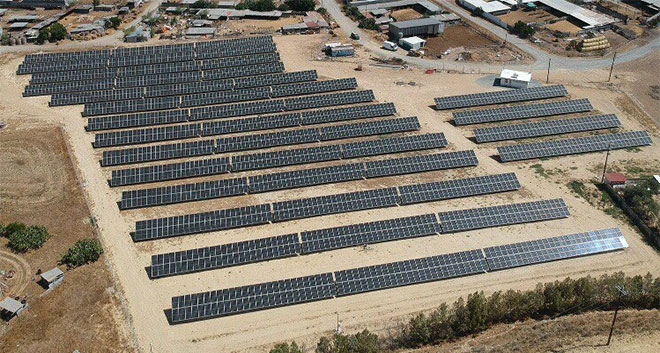If the government could so easily announce a 10% discount on the next two electricity bills, it begs the question, why not earlier?
On the other hand, as the sole shareholder of the Electricity Authority, the government cannot ignore the 10-year development programme and the need to invest more in infrastructure, efficient networks, cheaper production, and a drastic reduction in emissions.
We’re already paying out of our noses for the mistakes of the past, with the intentional delay in importing natural gas to burn in the EAC’s power stations costing us tens of millions a year in penalties and buying carbon credits.
In other words, although Cyprus has no polluting industries, as do larger economies, we’re probably producing as many toxic fumes per capita as any other country. A senseless calculation.
During the past decade, too much attention was paid to exploring and licensing the offshore natural gas fields in Cyprus waters without considering future market trends and inefficiencies in extraction and piping the product to a nearby plant.
Instead, Cyprus wanted to play with the big boys, believing it could attain energy independence, ignoring that Turkey continues to have the upper hand in almost everything in our region and would never allow Nicosia to benefit from this resource.
Smart political and geostrategic moves were needed.
But our attention was focused elsewhere, such as short-term gains from the golden passports scheme, and not on long-term targets to make the island greener, with cheaper electricity that would bring costs down and make the economy far more competitive and sustainable.
Besides the discount, a mere dent in consumer pockets, when electricity usage peaked in summer due to an over-reliance on air conditioners, the government also announced several other measures.
It aims for greater use of renewables.
However, it has a poor track record in enhancing solar panels on homes, no clear policy in encouraging electric cars, and a national network of charging stations.
At present, the electricity production cost in Cyprus is prohibitive and will only be reduced by a minimal 20% when we start burning natural gas.
Although emissions will also be less, it is still nowhere near the all-green output of solar parks.
The latter investments, too, have no significant benefit, at least to the consumer and taxpayer, as tariffs are based on the skewed policy of using the EAC output cost as a benchmark.
In other words, if solar and wind producers are already being subsidised, then they have no incentive to reduce their costs and continue to turn a good profit.
Liberalising the electricity market has only just started with the long-overdue legal framework only passed last week.
For years, the EAC has viewed this move as a threat, not realising it could also be a good opportunity for the utility to reinvent its mission and turn to renewables and network efficiencies.
Instead, it bought time by investing in its renewable energy source (RES) production.
Ironically, it is also a 40% shareholder in the national natural gas venture, which has yet to get off the ground and will soon become obsolete as we turn to greener and cleaner power.
Our energy policy needs a general redesign and overhaul.
Current operations are based on plans devised two or even three decades ago.
Back then, there was no serious concern about climate change.
And reaching zero-carbon targets was a dream, and Ursula von der Leyen was not around to conceive her Green Deal, a package that every EU member state must embrace as the ‘bible on energy’.
At least it’s a place to start.










